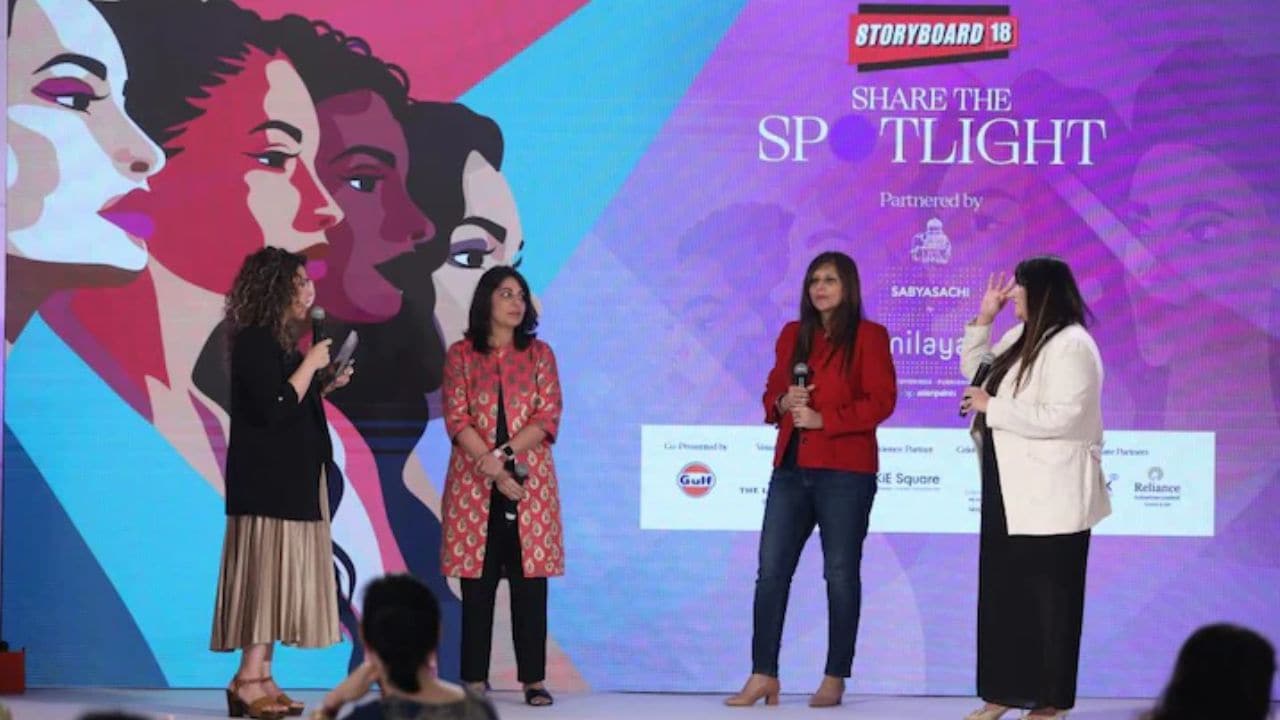At Intel, diversity, equity, and inclusion have been key drivers of success. To achieve greater gender representation, the company goes beyond global programs and initiatives by implementing a deliberate strategy in its hiring process.
As Roshni Das, Vice President, Global Marketing Innovation and India Region Marketing, at Intel Corporation, explains, the company ensures that a woman is always part of the interview panel to eliminate bias and promote fair hiring practices for new talent.
Speaking at Storyboard18’s Share The Spotlight event in Bengaluru, Das also highlighted Intel’s policy for gender and pay parity.
“Since 2019, Intel has looked at that role for the number of years of experience, regardless of what your pay package is today, we pay what you should be drawing for that scope of job instead of looking at what you are currently withdrawing,” she said.
Being a strong advocate for women in tech, Das also believes that “we (women in leadership roles) have the responsibility of paying it forward. We have to be the change we want to see.”
Additionally, she suggested, “I tell most young women to focus on your right to education, focus on your right to economic independence. And then, find the right partner- to have the right support ecosystem and somebody that’s always rooting for you.”
Professionally, Das advised that as one evolves as a leader, one should also become a player and a coach for the team.
At the event, Das shared the spotlight with Shenaz Bapooji, founder of Skyful and Aditi Nanda, Chief of Staff at Intel India.
Bapooji, who brings with her over 30 years of marketing and brand-building expertise, shared qualities that have helped her grow in her career.
“I am a very passionate individual, very driven. I’ve never had to wait for people to tell me what to do. But what’s kept me going is self-belief. And this whole idea that the world can be a better place. Leave your mark in whichever way you can and in the process, be kind. A lot of leaders lack compassion,” she said.
Nanda, who believes in humanising tech problems, shared that breaking down problems into smaller bits really helps.
“As a technologist you see the problem for its bits but when you break it down to its lowest denominator, it’s easy to kind of find the answer and move forward from there,” she said.
Concluding the discussion on how to best operate in the tech space that has traditionally been male-dominated, Nanda said, “Say yes to all sorts of things that come your way. You learn on the way. I think it is also ensuring that you bring the best version of yourself to work. And that leaves behind the gender part of it completely.”
